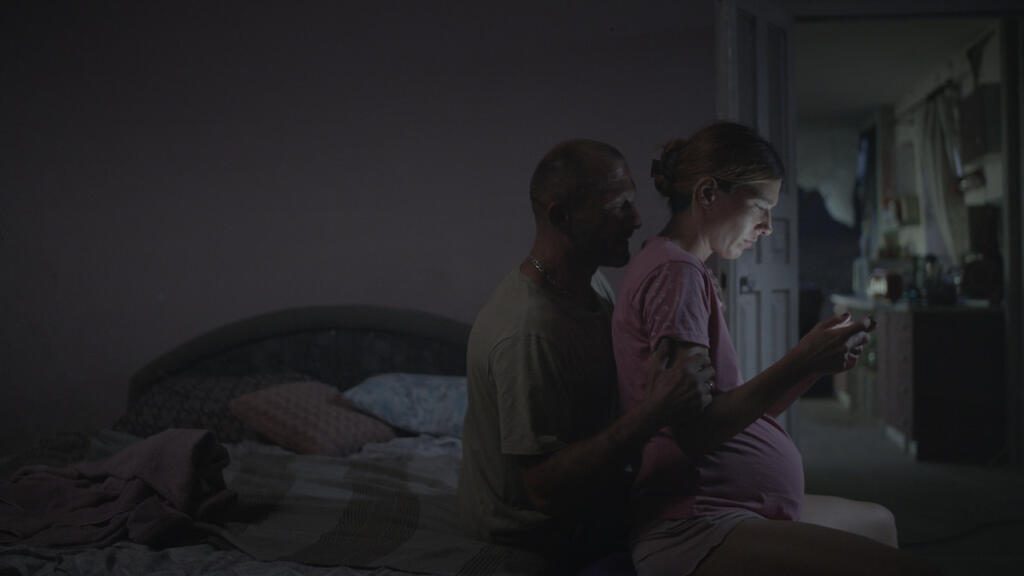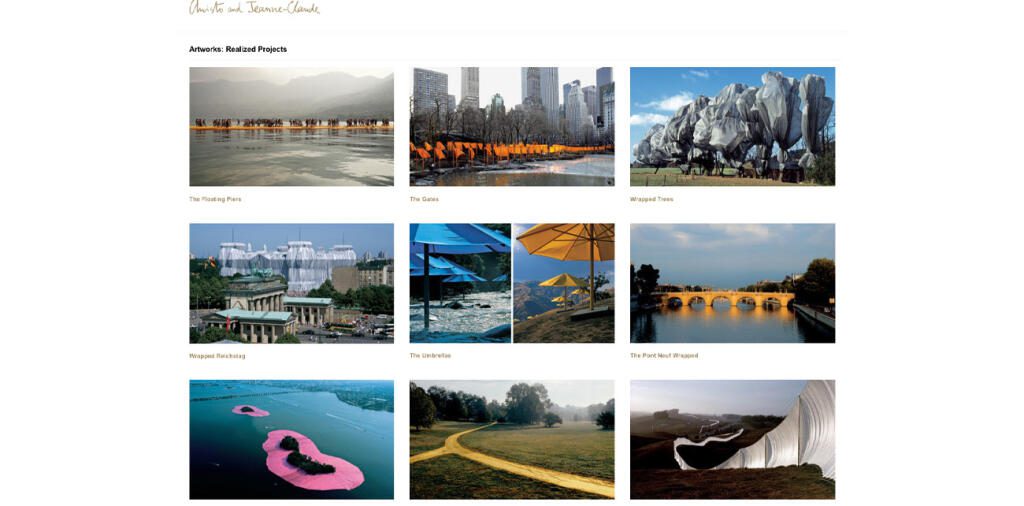ROMANIAN TIFF AND CZECH KARLOVY VARY HEAT UP THE FESTIVAL SUMMER
It’s Film Festival Season in South East Europe!
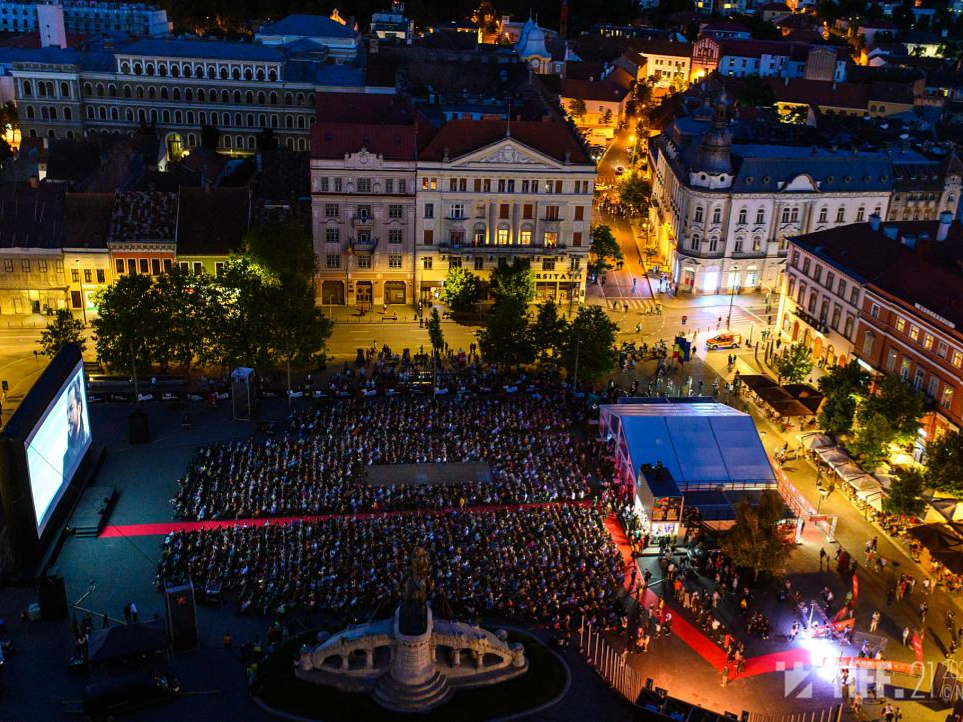
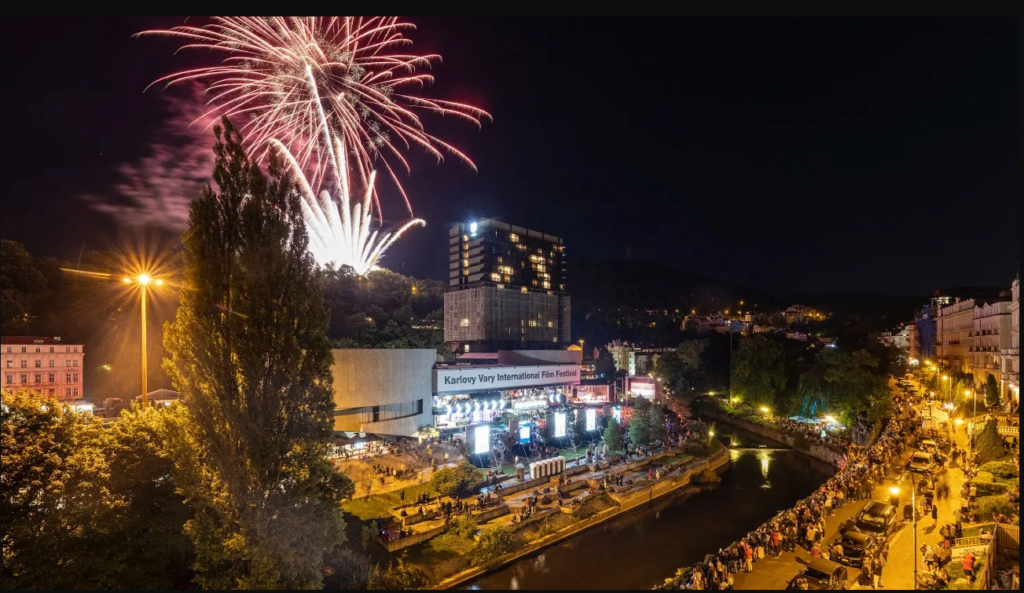
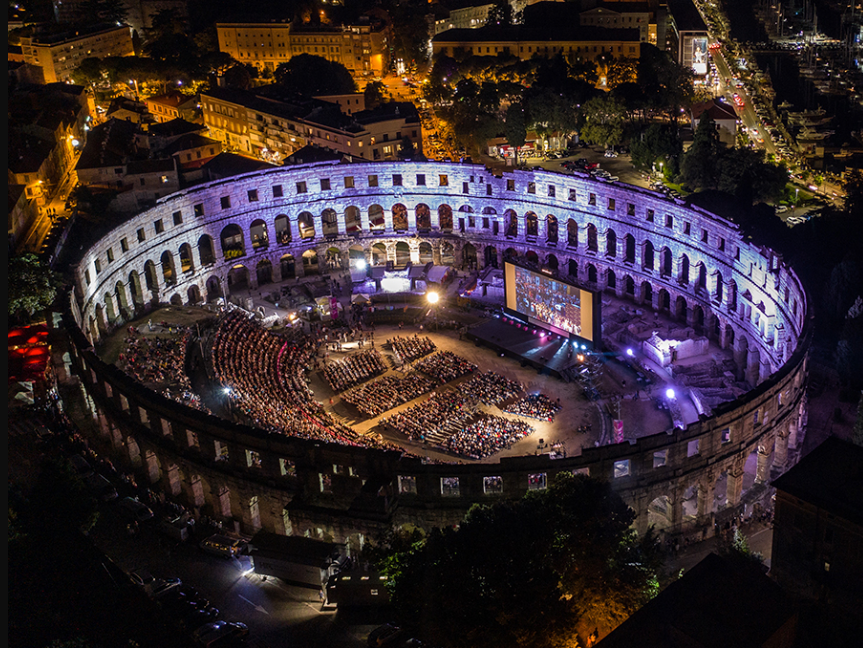
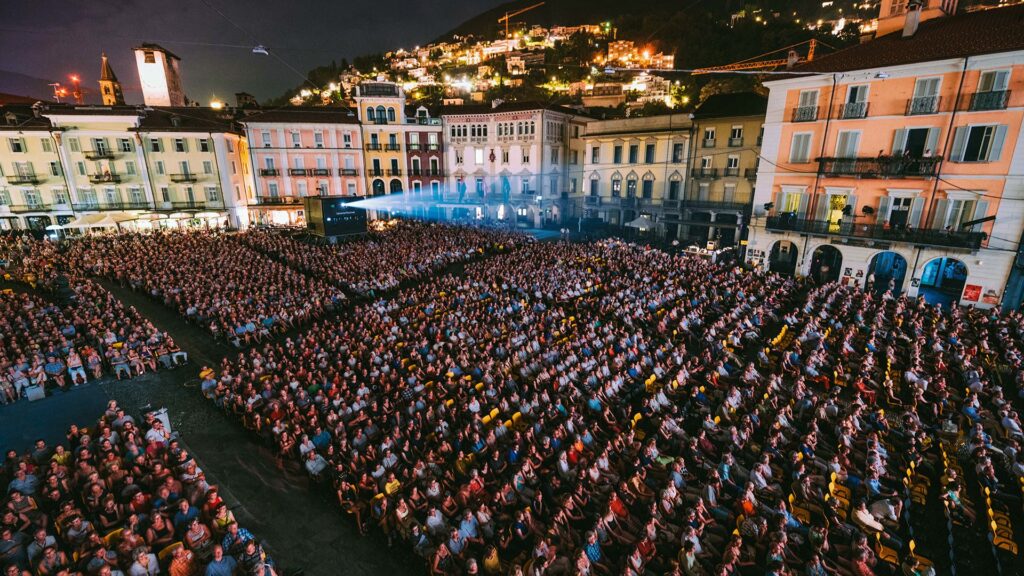
The busy festival summer kicks off this weekend with the 24th annual Transilvania International Film Festival in Cluj-Napoca, Romania, followed in July by the 59th festival in Karlovy Vary, Czech Republic, and the 72nd Pula Film Festival in Croatia.
Next in August are Locarno (the 78th edition) and Sarajevo (the 31st), the largest regional festival in South East Europe.
And there’s more to explore on the festival circuit! Packed programs with an increasing number of sidebars, industry platforms and special cultural events offer festivalgoers plenty to choose from.
Whether you’re a film industry insider or a tourist, European festival summer is welcoming to all guests. Enjoy!
TIFF Romania – https://tiff.ro/en
Karlovy Vary – https://www.kviff.com/en/homepage
Pula – https://pulafilmfestival.hr/?lang=en
Locarno – https://www.locarnofestival.ch/home.html
Sarajevo – https://www.sff.ba/en
“Greek Apricots” at Future Frames in Karlovy Vary
Short film by Slovenian director Jan Krevatin, “Greek Apricots” – which L.A. audiences saw at SEEfest in May, is part of European Film Promotion’s program Future Frames at the upcoming Karlovy Vary International Film Festival, July 4 – 12.
The film portrays a couple brought together by their shared Macedonian roots on a quiet summer night, and features renowned N. Macedonian actress Labina Mitevska (“Before the rain,” “I am from Titov Veles”). Congrats to the young filmmaker!
…and a few books to read on long summer nights…
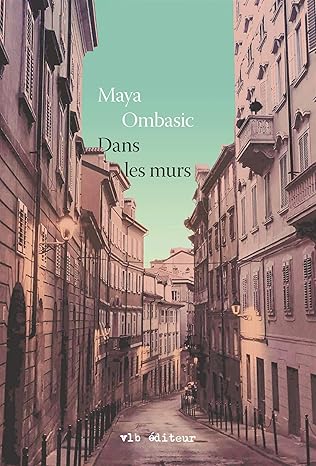
Maya Ombasic, from Bosnia and Herzegovina and based in Quebec, Canada, whose breakout debut “Mostarghia” established her on the international literary scene, has several books in print albeit mostly in French.
“Lejla” (Dans les murs) features a woman traveling to Trieste, a city she’s fascinated by since childhood, and a city that encapsulates the unique milieu of Central/East and Southeast Europe.
And More:
Andrey Kurkov, Ukrainian author whose novel “The Silver Bone,” translated by Boris Dralyuk, was on the 2024 International Booker Prize longlist.
Georgi Gospodinov: The Bulgarian author, who won the 2023 International Booker Prize with “Time Shelter,” translated by Angela Rodel.
Jenny Erpenbeck, a German author from the former East Germany, won the 2024 International Booker Prize for “Kairos,” translated by Michael Hofmann. This novel is set in the final years of communist East Germany.
“This Way to Paradise – Dancing on the tables,” a book about life in Greece, by lifelong Philhellene (and a supporter of SEEfest since its early days,) Willard Manus.
SUPPORT SEEFEST
Not a member yet? Become an art patron with other SEEfest arthouse aficionados in support of great events and programs. Our mission is to keep you informed about initiatives from our wide network of fellow cultural organizations.
We Welcome YOU!
Meet the Team at SEEfest’s 20-Year Milestone
by Cristina Sandu
Each spring, a unique cinematic voice echoes across Los Angeles, far from the glittering lights of Hollywood. That voice belongs to the South East European Film Festival, SEEfest, an annual celebration of storytelling that shines a spotlight on the cinematic culture of Southeast Europe. In its 20th year, SEEfest has become a beloved staple in the city’s cultural calendar, known for its diverse programming, global perspectives, and unwavering commitment to cross-cultural dialogue.
Founded by film curator and Artistic Director Vera Mijojlić, SEEfest was born from a bold idea to bridge continents through the universal language of cinema.
Since its grassroots beginnings, the festival has become a dynamic platform for independent voices often missing from mainstream discourse.
At its core is a team of cinema enthusiasts who keep up with the latest trends in the film festival industry and nurture its ever-growing community.
In a recent conversation with Elisa Iovine, Denise Wakeman, and Allie Rigby, we took a closer look at the people behind SEEfest and what keeps this festival relevant and thriving.
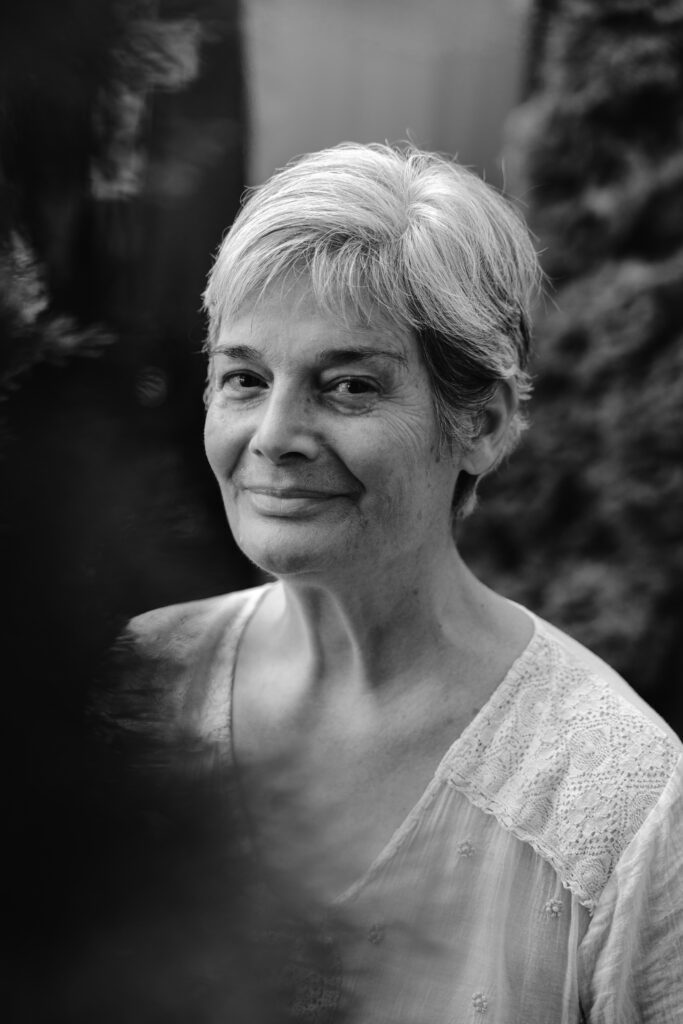
A Dream Realised
“The festival is Vera Mijojlić’s brainchild,” says Elisa Iovine, a long-time SEEfest team member and veteran of the global film industry.
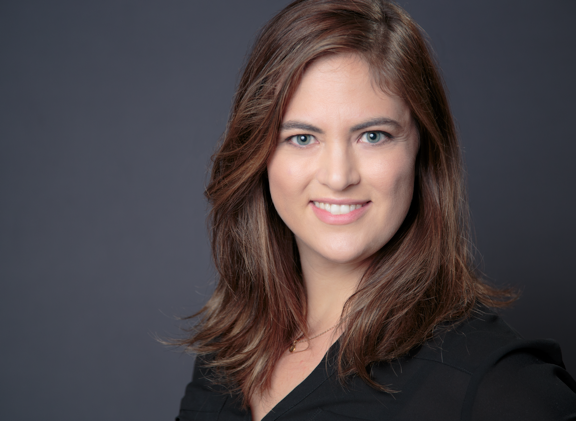
Elisa spent the past 15 years at Warner Bros., rising through the ranks to become Vice President of International Advertising. She has worked on some of the biggest film campaigns of the past decade, including blockbusters like “Wonder Woman.”
Her passion for SEEfest is personal and professional, which is a way to return to storytelling’s cultural roots.
“From the beginning, SEEfest was more than just a film festival,” she says. “It is a space for connection, for people to come together through the lens of Southeast Europe.”
Who Shows Up? Everyone.
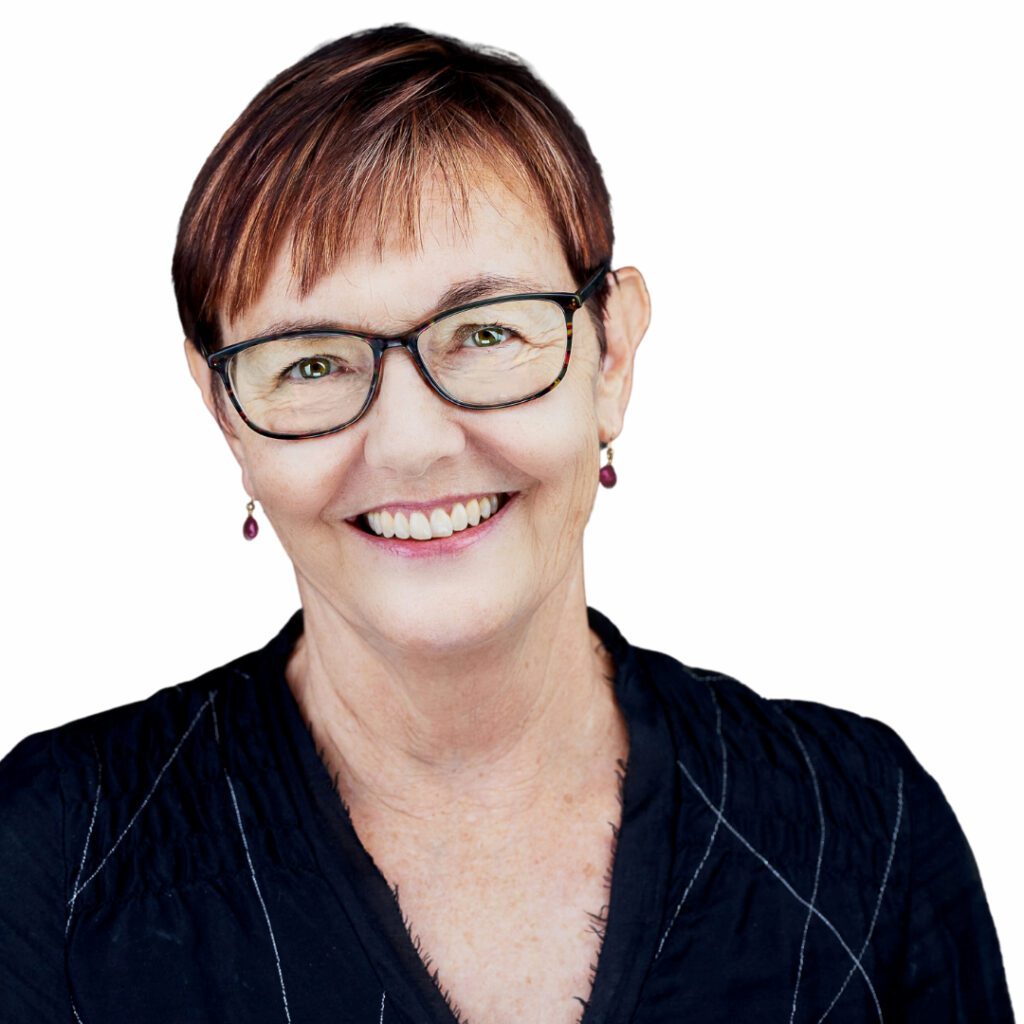
When asked about the kind of audience SEEfest attracts, both Elisa Iovine and Denise Wakeman, the festival’s Director of Digital Marketing, light up.
Denise Wakeman is a digital strategist and one of the early adopters of AI in digital marketing. She is constantly innovating how the festival reaches global and local audiences, and you can find more about her work at denisewakeman.com.
“We see everyone from curious film students to seasoned industry professionals, along with members of the Southeast European community and local cinephiles who simply love discovering new perspectives,” Elisa says. “It’s a wonderfully varied crowd, united by their love of storytelling and cultural exchange.”
Denise agrees that “It’s a smart, curious, open-minded audience. They’re eager to discover new stories and connect with voices they don’t usually hear from. It’s what makes SEEfest so special.”
A Milestone Year
2025 marks a major milestone: 20 years of SEEfest. And this anniversary brings not only reflection but also celebration.
“Two decades of Southeast European cinema in L.A., that’s no small feat,” says Elisa. “This year, we’re honoring the journey while still pushing forward.”
That push forward includes new programming and broader access.
SEEfest is showcasing six short film programs online, allowing audiences across the U.S. to participate in the festival from anywhere.
As Denise puts it, “Those who aren’t in L.A. or can’t get to a cinema can discover these films and stories anytime during the festival, anywhere in the U.S. It’s a great way to keep the conversation going and bring more people into the SEEfest community.”
Stories That Matter, Especially Now
In a time of cultural division and political polarisation, SEEfest’s mission feels more urgent than ever.
“Festivals like SEEfest are antidotes to isolationism,” Elisa says. “They remind us of our shared humanity through humour, history, and resilience, especially in places like the Balkans, where those stories are so richly layered.”
Denise adds, “I think SEEfest plays an important role right now because it allows us to slow down and connect through stories that don’t usually get much attention.”
SEEfest Review: Where Culture and Cinema Converge
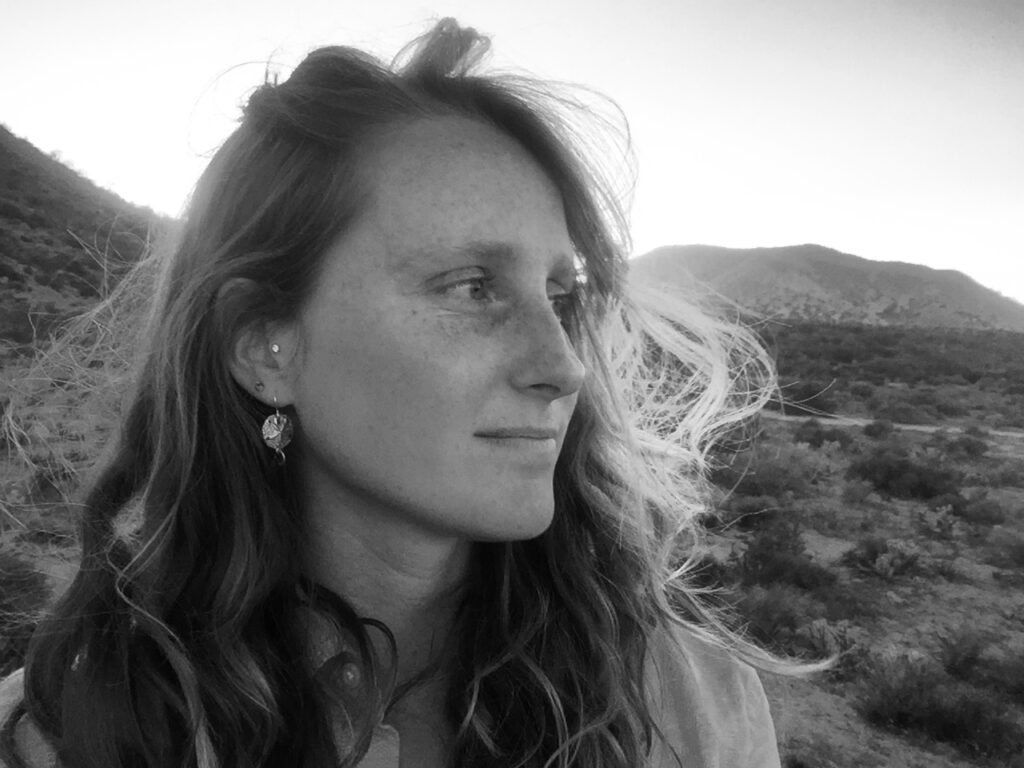
Beyond the screen, SEEfest continues the dialogue through its online publication, The SEEfest Review, a platform curated with care and creativity by Allie Rigby.
A poet, editor, and art enthusiast, Allie brings her literary sensibility and cultural insight to every issue. When she’s not curating content for SEEfest, she follows the international art scene and shares her creative work via allierigby.com.
“We’re trying to tell a larger story about Southeast Europe, and one that is relatable to anyone living in a nation where borders of all kinds exist, for better or worse, and usually, worse,” Allie says.
At The SEEfest Review, she seeks passionate voices, angles that feel urgent, and topics that promote cross-cultural dialogue.
Community at the Core
One theme emerges again and again in our conversation: community.
SEEfest thrives because of its people: the volunteers, the local partners, the audiences, and the filmmakers.
“SEEfest has always been community-driven,” Elisa says. “From the start, SEEfest has relied on the passion and dedication of volunteers, community leaders, and local businesses who believed in the importance of showcasing Southeast European cinema and culture.”
Changing Perceptions
Asked what she’d most like to change about how Americans view European cinema, Elisa doesn’t hesitate. “That it’s not for them. This opinion often stems from misconceptions that European cinema, particularly from Southeast Europe, is either too ‘art house,’ too serious, or somehow disconnected from American viewers’ experiences.”
Denise adds, “More people realize European film isn’t just French or Italian cinema. There’s so much happening in places like Bosnia, Romania, Ukraine, and Serbia, and SEEfest is helping open those doors.”
Looking Ahead: Bigger Platforms, Wider Impact
What’s next for SEEfest?
A dream collaboration with a major festival like Sundance or TIFF is high on the wishlist.
“Sundance would be a perfect fit,” Elisa says. “I believe the Sundance Film Festival would be an ideal partner for several strategic reasons. Sundance’s commitment to independent voices and emerging filmmakers aligns perfectly with SEEfest’s mission of discovering and elevating new talent from Southeast Europe.”
As Denise notes, the goal isn’t just recognition. “It’s about people coming together, watching something powerful, and then sticking around to talk about it. That shared experience helps build connections with fellow cinephiles and expands the festival’s reach into diverse neighbourhoods.”
Final Cut: SEEfest Is More Than a Festival
In the end, SEEfest is about so much more than films. It’s about community. It’s about cross-cultural curiosity. And most of all, it’s about the belief that stories told with heart, humour, and honesty can bring us closer in a world that often feels too far apart.
As SEEfest enters its third decade, its team continues to shine a light on the voices of Southeast Europe, one film at a time, while proving that when it comes to cinema.
About the Author
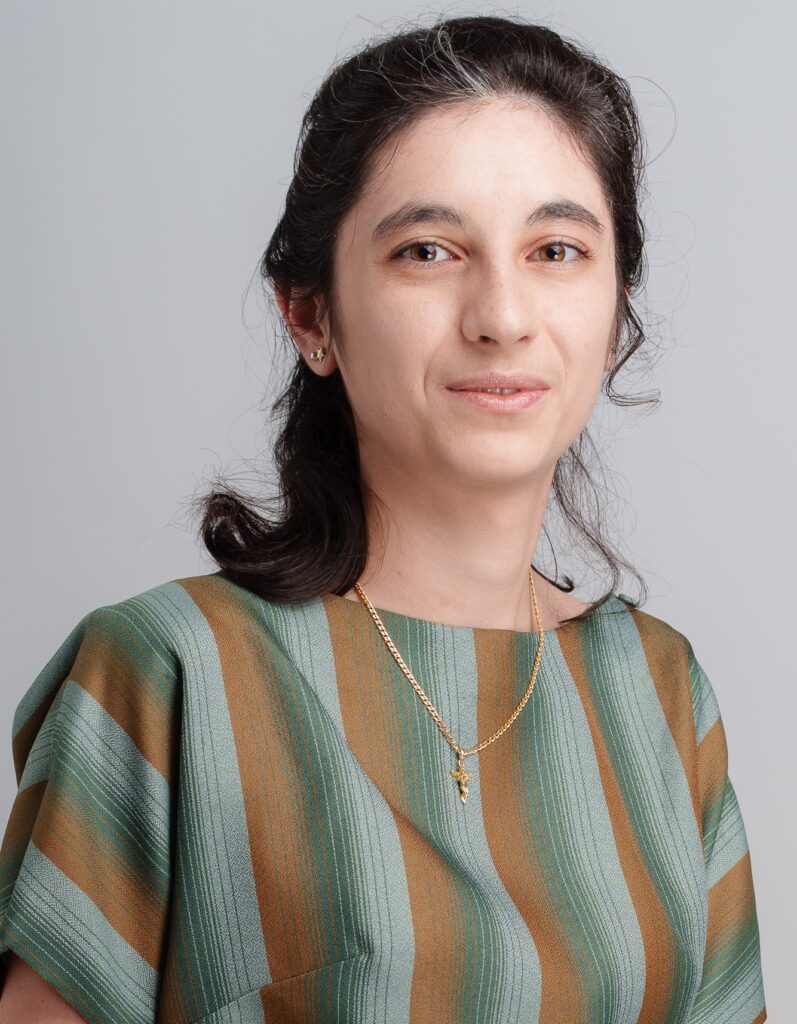
Ioana Bîrjan (b.1997) is the author of Vârsta Iubirii which translates into English as The Age of Love (Heyday Books, 2023). The novel is inspired by the Lady of the Camellias and the opera La traviata. She earned a bachelor’s degree from the Faculty of Letters, Ovidius University of Constanța, where she is now a graduate student in the Romanian Studies program.
Read more of her work in magazines, in anthologies, and on her blog: https://scrierileioanei.wordpress.com/
SUPPORT SEEFEST
Not a member yet? Become an art patron with other SEEfest arthouse aficionados in support of great events and programs. Our mission is to keep you informed about initiatives from our wide network of fellow cultural organizations.
We Welcome YOU!
The Frontier Café – Conversation with Dr. Ali İğmen
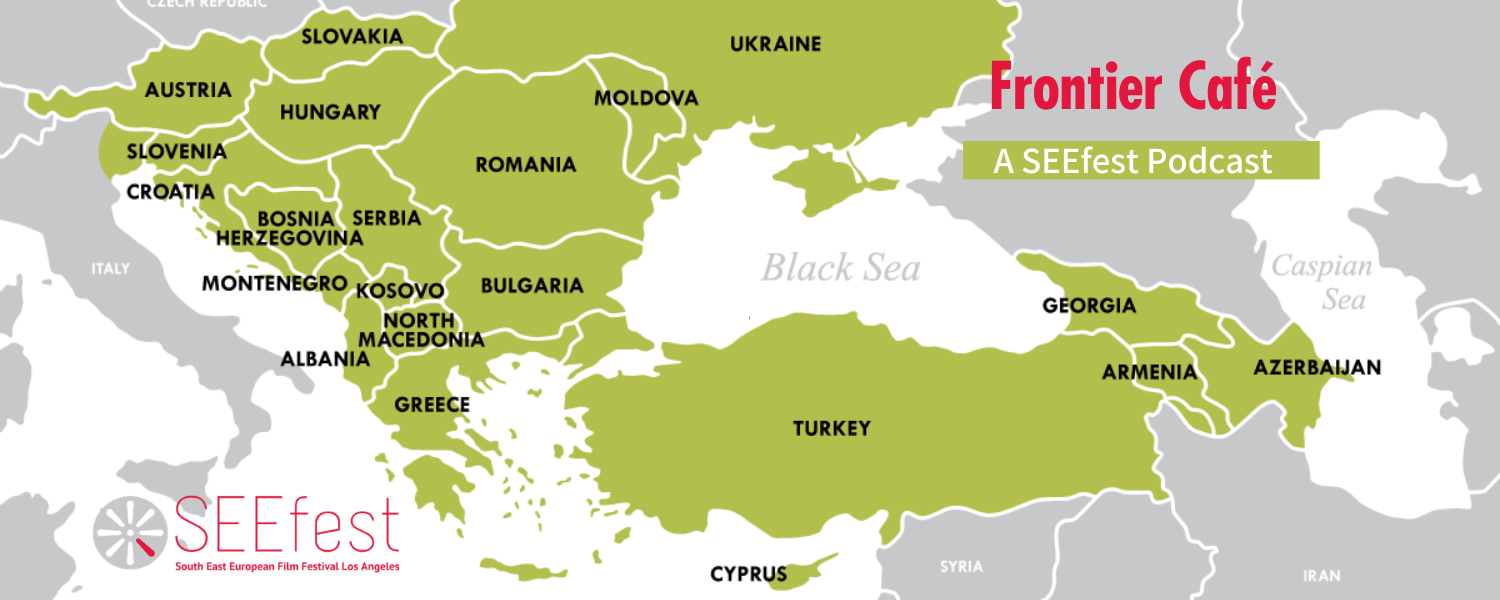
The history and future of Balkan Cinema
Please subscribe to our new podcast. Available on Anchor, Spotify, Amazon Music, Google Podcast, Castbox, Pocket Cast, Radio Public, YouTube
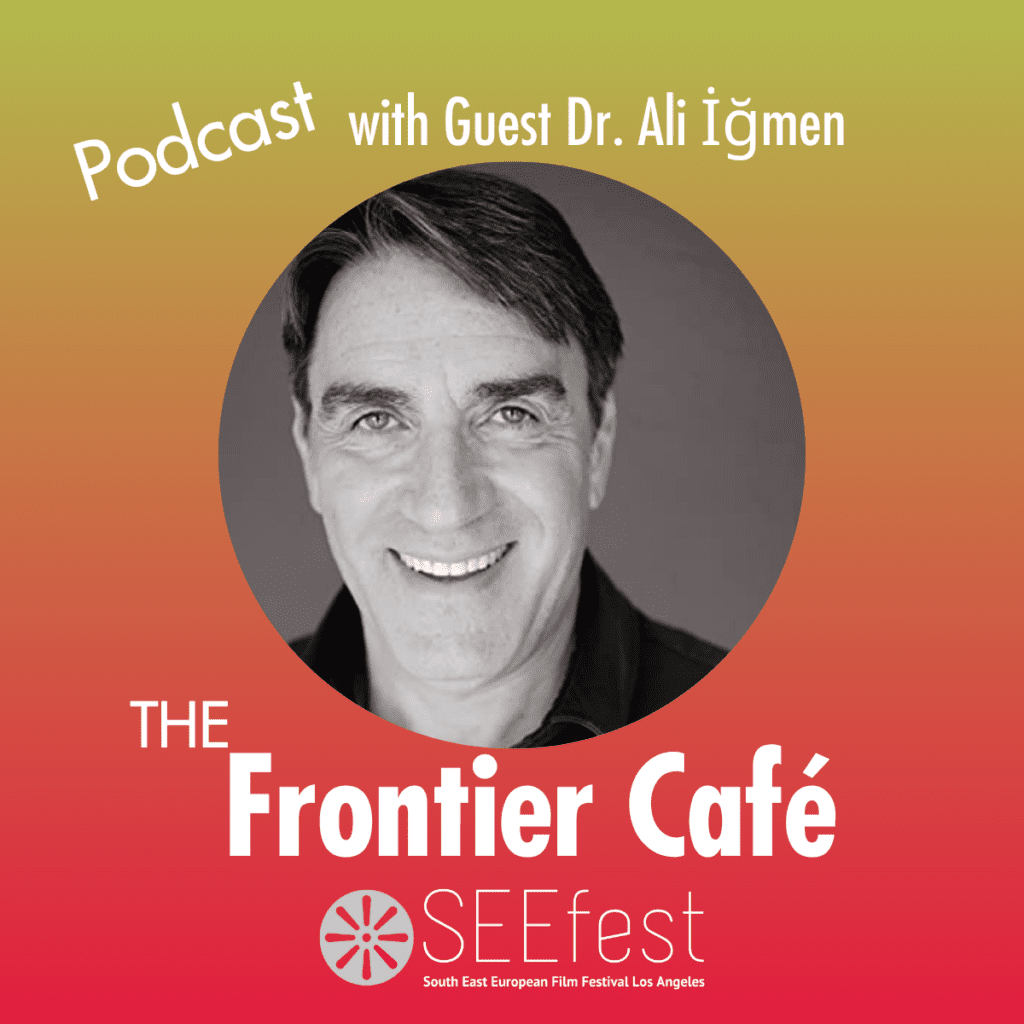
On this episode of Frontier Cafe, host Milan Zivkovic chatted with Dr. Ali İğmen, one of his favorite History professors at California State University at Long Beach (CSULB). The conversation touched on representation in film, cinema as ideology, and current films that caught our attention (for better or worse). Please enjoy the discussion merging historical perspectives with film!
About the Guest
Dr. Ali İğmen s a Professor of Central Asian History and the Director of the Oral History Program at California State University, Long Beach (CSULB). His book, Speaking Soviet with an Accent: Culture and Power in Kyrgyzstan, was published by the “Central Asia in Context Series” of the University of Pittsburgh Press in July 2012 and was a finalist for the best book award of the Central Eurasian Studies Society.
His most recent article, “Intimate Publics, Looking Back and Looking Abroad,” will appear in the collected volume Tulips in Bloom, An Anthology of Central Asian Literature, co-edited by Gabriel McGuire, Naomi Caffee, Emily Laskin, Samuel Hodgkin, and Christopher Fort.
He received his doctorate from the University of Washington in Seattle in 2004 and, as a post-doctorate visiting scholar, taught at the University of Wisconsin in Madison. He also taught classes at Kyrgyz National University in Bishkek, Osh State University in Osh, Kyrgyzstan, and Boğaziçi University in Istanbul, Turkey.
Many awards helped İğmen support his research on Kyrgyzstan, such as Fulbright Hays, SSRC, and Mellon Slavic Studies Initiative Grant.
Making Culture in (Post) Socialist Central Asia, co-edited with Ananda Breed and Eva-Marie Dubuisson, London: Palgrave Pivot, Palgrave McMillan Book Series, 2020.
Connect with Dr. Ali İğmen on Social
SUPPORT SEEFEST
Not a member yet? Become an art patron with other SEEfest arthouse aficionados in support of great events and programs. Our mission is to keep you informed about initiatives from our wide network of fellow cultural organizations.
We Welcome YOU!
The Frontier Café – Conversation with Daylyn Paul

Working in a Post-Covid Film Industry
Please subscribe to our new podcast. Available on Anchor, Spotify, Amazon Music, Google Podcast, Castbox, Pocket Cast, Radio Public, YouTube
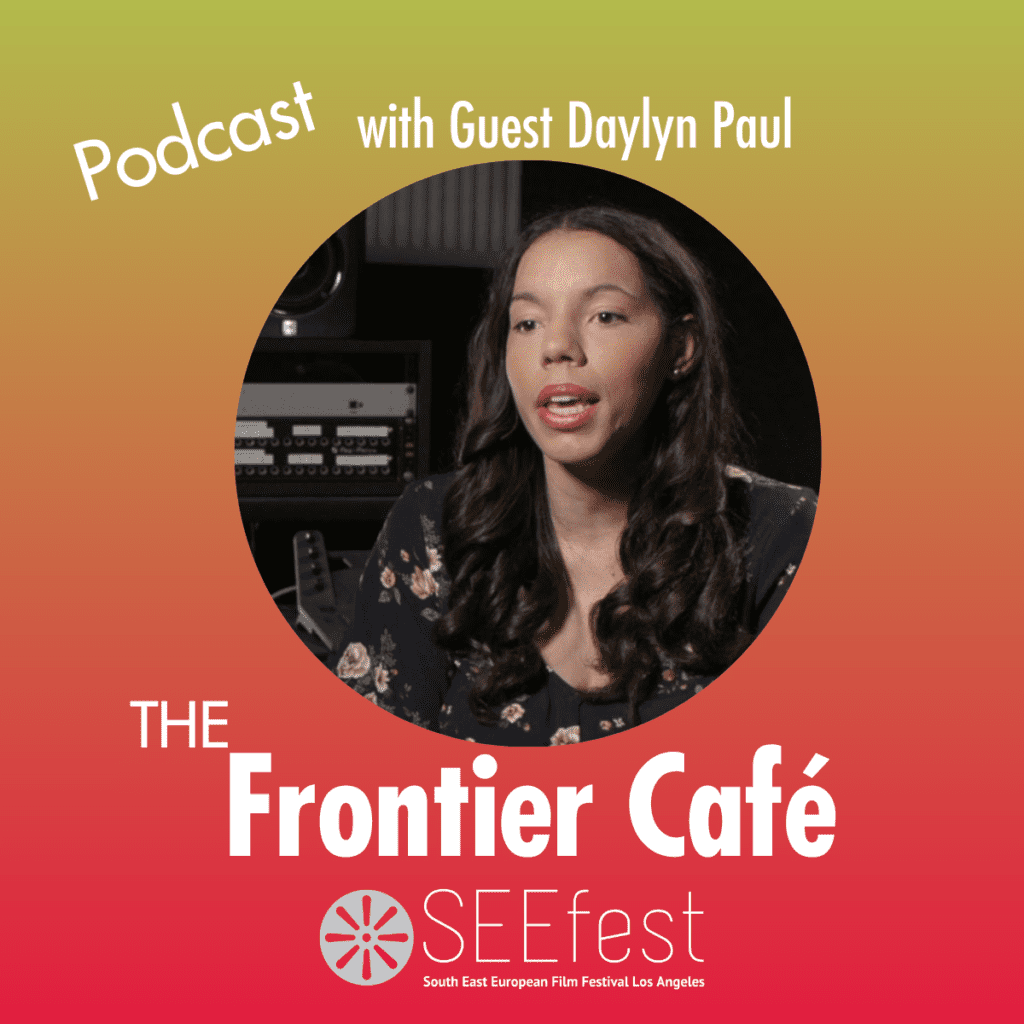
In this episode of Frontier Cafe, host Milan Zivkovic spoke with fellow CSULB alum Daylyn Paul, a writer and filmmaker based out of Los Angeles. Recorded at Aroma Cafe in Los Angeles, Daylyn and Milan discuss working in a post-Covid film industry, historical representation in films, and how writers function in various productions. We hope you enjoy this discussion between two peers branching into different paths!
About The Guest
Daylyn Paul is a director and writer based out of Los Angeles. A graduate of California State University Long Beach and a recipient of the HFPA directing and writing grant, Daylyn has over eight years of experience in the entertainment industry. She currently works at CBS and ABC as a production assistant. Her previous works include the short film Nothing There Sings (2019) and the TV movie Suggestion Box (2019). Additionally, Daylyn was a casting assistant for the 2019 short film Flawless. She also works as a writer for an Amazon podcast set to release later in 2022.
Connect with Daylyn Paul on Social
SUPPORT SEEFEST
Not a member yet? Become an art patron with other SEEfest arthouse aficionados in support of great events and programs. Our mission is to keep you informed about initiatives from our wide network of fellow cultural organizations.
We Welcome YOU!
The Frontier Café – Conversation with Elma Tataragić
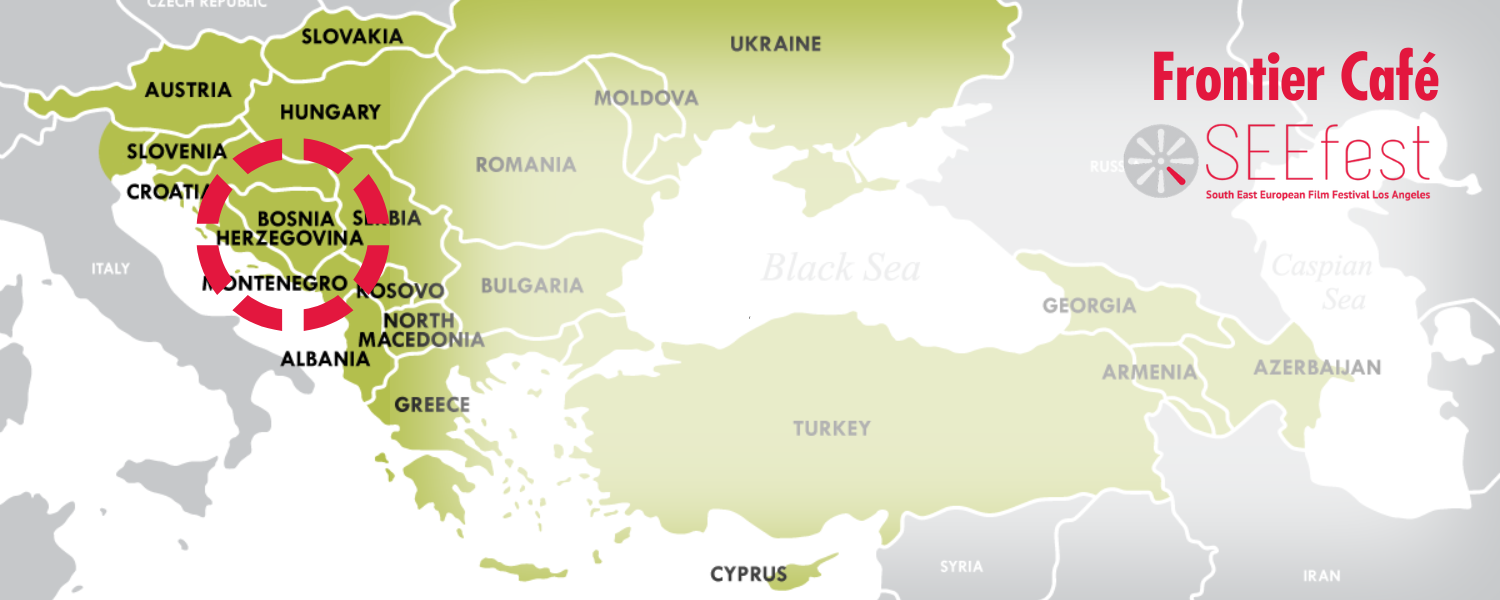
The History of Bosnian Cinema and the Role of Memory in Cinema
Please subscribe to our new podcast. Available on Anchor, Spotify, Amazon Music, Google Podcast, Castbox, Pocket Cast, Radio Public, YouTube
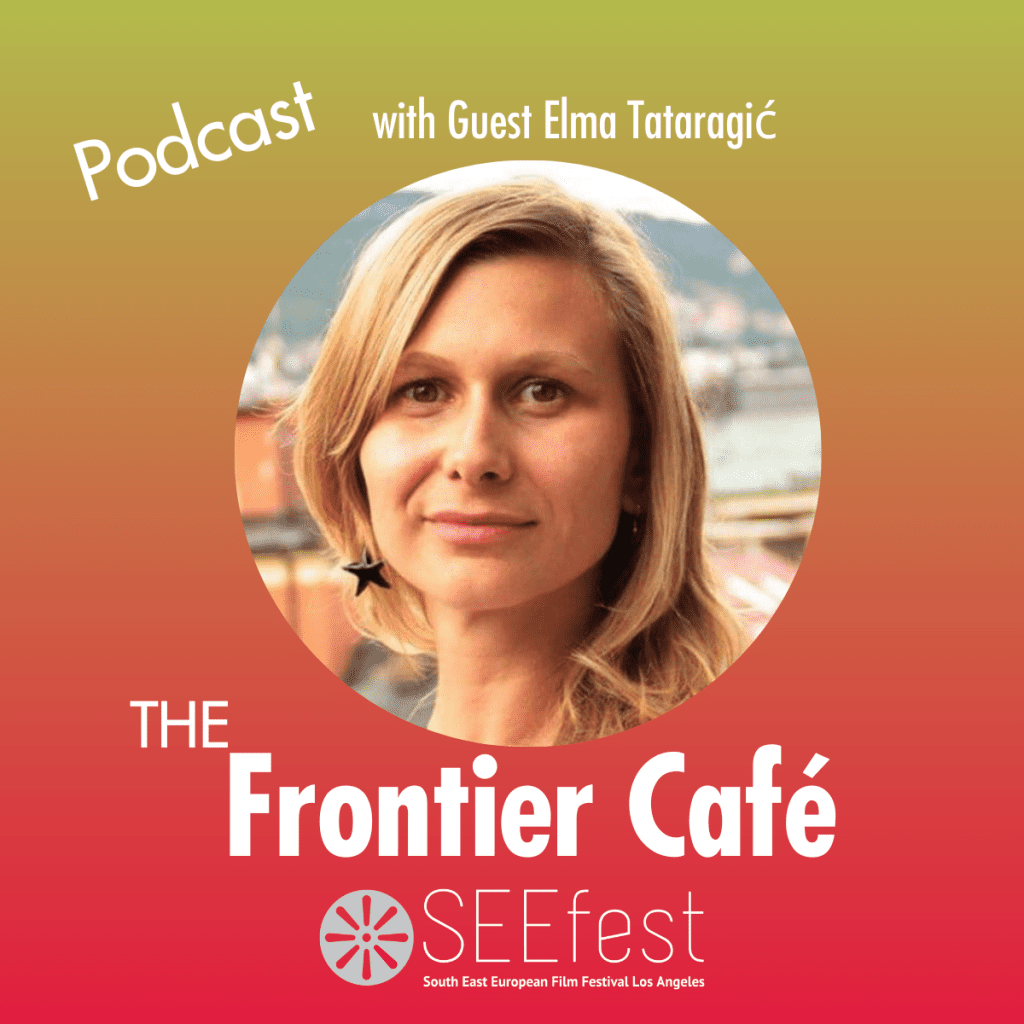
This episode features a conversation with Elma Tataragić. Elma currently works as a selector for the Competition Program for the Sarajevo Film Festival and is the President of the Filmmakers Association of Bosnia and Herzegovina. During our talk, we touched upon the history of Bosnian cinema, her work with film students, and the role of memory in film. Please enjoy our conversation demonstrating the untapped potential of films and their impact on local and global communities!
NOTE: The language spoken in this interview is Bosnian/Croatian/Serbian (link to English translation or watch on YouTube with English captions)
About The Guest
Elma Tataragić (1976) is a scriptwriter, professor and festival programmer. She graduated Dramaturgy (Screenwriting and History of Cinema) at Sarajevo Academy of Performing Arts and obtained her Master of Science degree and PhD in Film and Literature. She has been with Sarajevo Film Festival since it was founded in 1995, where she now works as selector for Competition Programs and CineLink Industry Days.
She co-wrote short film First Death Experience (2001) and wrote and produced short North Went Mad (2003), both directed by Aida Begić. She has produced and co-written the feature film Snow (2008) also directed by A. Begić, shown in the Semaine de la critique at Cannes Film Festival 2008, where the film won the Grand Prix. The film has been shown at over 80 festivals and won over 30 international awards. She is the General Secretary and a member of Filmmakers Association of Bosnia and Herzegovina. She has been teaching screenwriting at Sarajevo Academy of Performing Arts since 2002, now as a professor.
She is member of European Film Academy and has published a book on screenwriting and is also works as a script consultant. In 2016 she has completed her short fiction film I Remember, which is successfully touring the world film festivals. The feature film When The Day Had No Name (2017) directed by Teona Mitevska which she has co-written premiered in Panorama Special at Berlinale 2017. She is currently in preproduction of two feature films she has written: Stitches to be directed by Serbia director Miroslav Terzić and God Exists And Her Name Is Petrunija by Macedonian director Teona Mitevska. She’s also developing a new feature and short experimental films.
Connect with Elma on Social
SUPPORT SEEFEST
Not a member yet? Become an art patron with other SEEfest arthouse aficionados in support of great events and programs. Our mission is to keep you informed about initiatives from our wide network of fellow cultural organizations.
We Welcome YOU!
Ukraine in the 17th edition of SEEfest
The 2022 South East European Film Festival announces the inclusion of Ukraine in the 17th edition
The 2022 South East European Film Festival announced the inclusion of Ukraine in the program, with two outstanding films, the 2022 Sundance directing award winner Klondike by Maryna Er Gorbach and the US premiere of Blindfold by Taras Dron. Both films focus on ordinary people trying to live their lives under the constant threat of new conflict and war traumas that just won’t go away.
“SEEfest is proud to bring to L.A. audiences these remarkable films with strong female characters at the center of the story,” says Vera Mijojlic, founder and director of the festival. “We have previously worked with Maryna Er Gorbach who co-directed, with Mehmet Bahadir Er, 2020 festival entry Omar and Us. We look forward to continuing this collaboration and supporting our colleagues in Ukraine.”
Info about Blindfold is here. Klondike info is here.
Two short animation films from Ukraine are also in the program. The 17th annual edition of the Los Angeles-based film festival is slated to unfold as a hybrid, with in-person as well as virtual screenings on the Eventive platform.
SEEfest is proudly co-presented by ELMA, the L.A.-based foundation for European Languages and Movies in America.
SUPPORT SEEFEST
Not a member yet? Become an art patron with other SEEfest arthouse aficionados in support of great events and programs and our mission to keep you informed about initiatives from our wide network of fellow cultural organizations.
We Welcome YOU!
In Solidarity
Less than a quarter-century since the last deadly fighting was over in Eastern Europe the winds of war have again engulfed the region. Under attack, hundreds of thousands of civilians are fleeing Ukraine and pouring into neighboring countries. Non-Ukrainian residents and Ukrainians alike are seeking shelter in Romania and Poland, and farther afield. The danger of a widening conflict is ominously present.
Please check these two internationally recognized relief organizations working with refugees worldwide:
International Rescue Committee, the IRC, is already working on the ground in Poland; and the UN Refugee Agency, UNHCR, helping displaced families.
Romania has already accepted a large number of refugees, and the Embassy of Romania, together with the Romanian United Fund, has established Ukrainian Peace Fund to support health facilities with necessary supplies such as medicine, as well as food and hygiene items.
Art, especially visceral cinema such as recent movies by Ukrainian directors, brings us up close to what people on the ground experience. Art by itself may not stop tanks, but it gives the fuel to the human spirit to fight them.
Memorable films from the SEEfest archives
Some of the memorable films from the SEEfest archives about either the societies at war or in the post-conflict state include No Man’s Land, The Cordon, Before the Rain, Borderline Lovers, Kukumi, The Paper Will Be Blue, California Dreamin’, The War is Over, Medal of Honor, Valley of Peace, A Day on the River Drina, Fuse, Sarajevo, My Beautiful Country, Half Shaved, Babai, A Good Wife, Refugee 532, That Trip We Took With Dad, Politiki Kouzina, Omar and Us, Ethnophobia, The Grey War, Men Don’t Cry, The Other Side of Everything, The Diary of Diana B., Zana, So, What’s Freedom?, and Quo Vadis, Aida?
They are mementos of the past that should not be forgotten.
Cover image is a still from Quo Vadis, Aida?
SUPPORT SEEFEST
Not a member yet? Become an art patron with other SEEfest arthouse aficionados in support of great events and programs, as well as our mission to keep you informed about initiatives from our wide network of fellow cultural organizations.
We Welcome YOU!
SEEfest Alumna Gets Distribution for “HOMEMADE” Documentary Web Series
SEEfest Accelerator Alumna Ivana Strajin Joins Forces with Dunn Vision
Food is so personal. Growing up, some of my favorite childhood memories were those spent in the kitchen cooking with my dad and baking with my mom. As a kid, I didn’t realize that what we were preparing had any cultural significance. It was just food. I thought everyone in Toronto made sarma in the winter!
Now more than ever, I treasure these multi-generational family recipes as many members of the diaspora do. We preserve these recipes because they connect us, not only to our heritage but to loved ones, both alive and long lost.
HOMEMADE Celebrates Cultural Heritage Through Food
I knew that this personal connection to food was universal. I wondered what kinds of interesting stories we’d hear if we asked home cooks to tell us about their most treasured family recipes and the meaning behind them. Feeling inspired, I decided I wanted to create a web series that would shine a spotlight on home cooks. HOMEMADE was born.
Several Canadian home cooks agreed to share their stories. We went into their homes and kitchens. We filmed them as they prepared their favorite dish or meal. We interviewed them afterward. We asked them about the personal significance of the dish, and they shared more than just the mechanics of how to prepare the dish. They shared heartwarming stories and unique traditions associated with these deeply personal recipes.
HOMEMADE features recipes from all around the world, from South India to Haiti. However, there are seven episodes. Naturally, we could not get to every region! Perhaps it will be a possibility in the future.
Our very first episode features a home cook whose family heritage is from South East Europe! Yasemin Kamci shares her family’s Turkish-Cypriot dolma recipe.  For centuries, stuffed grape leaves have been a staple in the cuisines of countries across South Eastern Europe to Central Asia. Depending on where you enjoy these culinary delights, they may be referred to as dolma, dolmeh, sarmice… and more!
For centuries, stuffed grape leaves have been a staple in the cuisines of countries across South Eastern Europe to Central Asia. Depending on where you enjoy these culinary delights, they may be referred to as dolma, dolmeh, sarmice… and more!
Yasemin’s multi-generational recipe features grape leaves that are stuffed with rice, tomatoes, and herbs. It happens to be a completely vegan recipe. That said, it’s common to find variations on this recipe that include ground beef or lamb. Some include zucchini, peppers, and eggplants. Aside from regional nuances, every household has its own take on this classic dish.
In Yasemin’s family, dolma represented the start of summer in Ontario. Her parents grew grapevines in their backyard and would pick the leaves to make dolma. Everyone would save their appetite all day to leave room for their big dolma feast in the evening. While we couldn’t time travel to Yasemin’s childhood to film these family gatherings, Jane Guan, our animator, transports us there through her beautiful illustrations.
We featured Episode 1: Dolma by Yasemin Kamci in our short festival run. It was this very episode that caught the attention of the team at Dunn Vision. They saw the episode and reached out to me directly to include our series on their new streaming service. The episodes are now available for your viewing!
My hope for audience members is that you’ll resonate with the stories shared by our home cooks and continue to treasure your family recipes, traditions, and memories.
Watch all seven episodes here.
Slovenian Film Retrospective and Remembering Christo
From the SEEfest archives
In 2011 SEEfest partnered with UCLA Film & Television Archive and the Slovenian Film Center to present the first-ever L.A. retrospective of Slovenian post-WWII cinema. Titled Slovenia Begs to Differ, the program featured VALLEY OF PEACE (Dolina Miru), 1957 Cannes Film Festival’s Best Actor Award for John Kitzmiller in the role of the stranded American paratrooper; and VESNA, 1953 socialist rom-com which was so popular that Slovenia’s highest film honor was also named ‘Vesna;’ The pretty actress Metka Gabrijelčič (pictured above) appeared in two more films before leaving acting for a career in civil engineering!
On the playbill were also THE RAFT OF THE MEDUSA (Splav Meduze, 1980), a whimsical throwback to the dada movement in the Balkan backwaters of the 1920s, when Serbian homegrown Zenitism blew some welcoming breath of fresh air onto the art scene; DANCE IN THE RAIN (Ples v dežju, 1961), an enigmatic drama of love between a brooding young painter and an older actress, played by the lovely Duša Počkaj; and PAPER PLANES (Na papirnatih avionih, 1967), featuring an ad man romancing a young ballerina in the Slovenian Alps.
Ten films were shown at the Billy Wilder Theater housed at the Hammer Museum in Westwood. The films were screened from 35mm archival prints, courtesy of the Slovenian Film Center.
We remember Bulgarian-born artist Christo
Christo was famous for his monumental projects, wrapping landmarks around the world and creating temporary installations such as floating piers, field of umbrellas, or gigantic curtains and pyramid-like structures made of oil barrels. His partner in life and in art, Jeanne Claude, died in 2009. Take a journey through his works and browse the project portfolio.
FRIENDS OF SEEFEST

SEEfest program and activities are supported, in part, by the California Arts Council, a state agency; Los Angeles County Board of Supervisors through the Los Angeles County Department of Arts and Culture; and by an Arts Grant from the City of West Hollywood. Special thanks to ELMA, and the Hollywood Foreign Press Association for their continued support of our programs.
Follow SEEfest on Instagram and Facebook where we post SEE news as it happens!
SEEfest Volunteer Spotlight – Nejra Kravic
SEEfest cannot exist without the fabulous interns and volunteers who are working behind the scenes day in and day out, especially between January and May. We’re putting the spotlight on these dedicated cinephiles who make the annual festival a reality.
Nejra Kravic comes to Los Angeles by way of Sarajevo. She’s a Media Studies major at Pomona College.
Here’s Nejra, in her own words…
What attracted you to volunteer for SEEfest?
I have volunteered at film festivals before and wanted to continue being a part of a community that cherishes film as an art form, all while bringing together viewers and artists alike.
How long have you been involved with SEEfest and the Festival and what volunteer positions have you held?
This is my first year as an intern at SEE fest and I could not be more excited! I have volunteered at the 2019 festival.
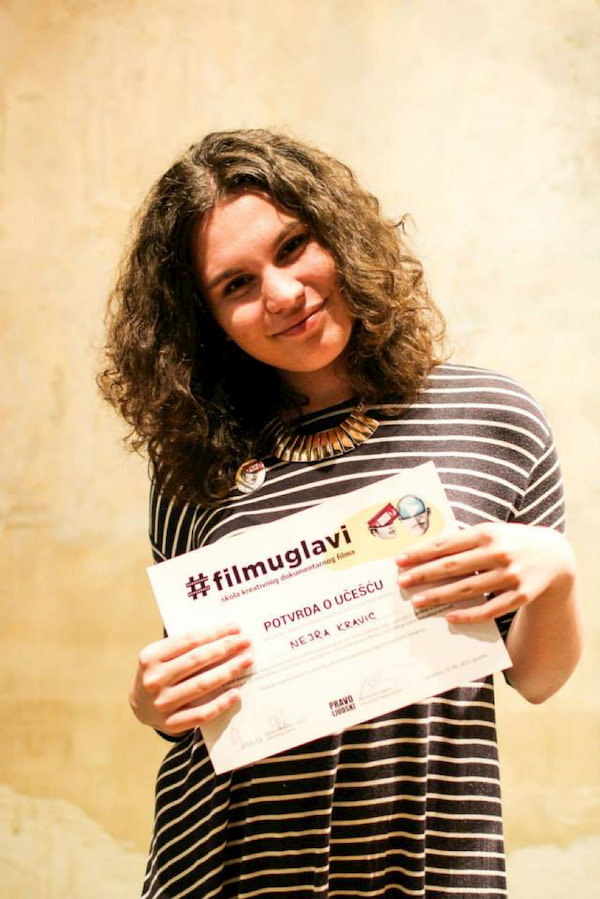
Are you involved in the film industry? If so, what do you do? How did you get started?
I have an enormous interest in the film industry, and besides volunteering for a couple of film festivals and working at Pomona College’s film equipment service, I am also a Media Studies major looking to pursue a professional career within the field.
What’s your favorite film and why?
That might be one of the hardest questions ever! I feel like I am always going through ‘’phases’’ with certain filmmakers and genres. Right now, I am a huge fan of Andrei Tarkovsky, a famous Russian director, and the majority of his filmography. I enjoy the inherent poeticism of his films, as well as his appreciation of one’s relationship with nature.
Tell us a bit about your life: where are you from; what do you do for a living; what do you love about Los Angeles and how long have you lived here?
I am from Sarajevo, Bosnia and Herzegovina and currently a rising junior and an international student at Scripps College in Claremont, California. My favorite part about Los Angeles, besides the incredible weather, is the abundance of things to do around the city. I like going to the movies, exploring museums, bookstores and coffee shops, or simply hanging out with some friends at the beach.
What do you look forward to most about working with SEEfest?
Before becoming an intern at SEE fest, I was always involved with film festivals during the actual event season. I would love to take part in everything that comes prior, and learn more about what it actually takes to keep a film festival running throughout the year.
Please say hello in the comments and welcome to Nejra Kravic to SEEfest!
Click the button below to learn more about becoming a SEEfest Volunteer.
Psst! Please do us a favor and subscribe to the SEEfest YouTube Channel. We’ll be posting a lot more videos there this season!


